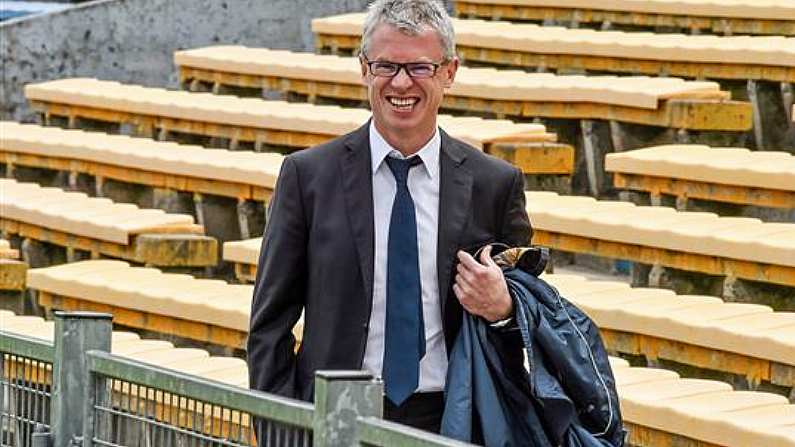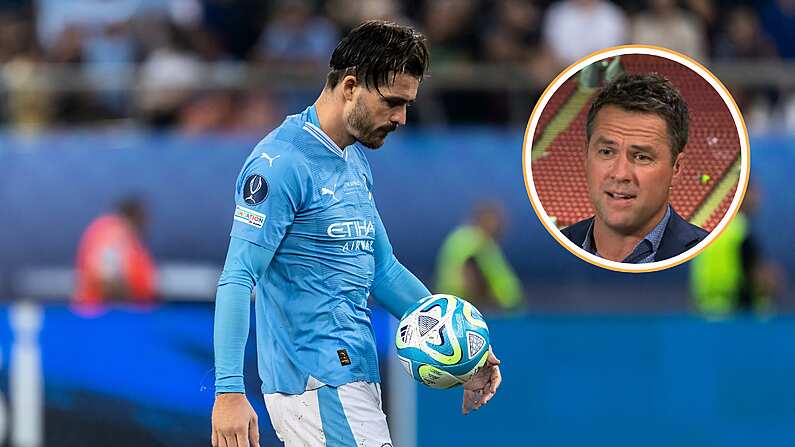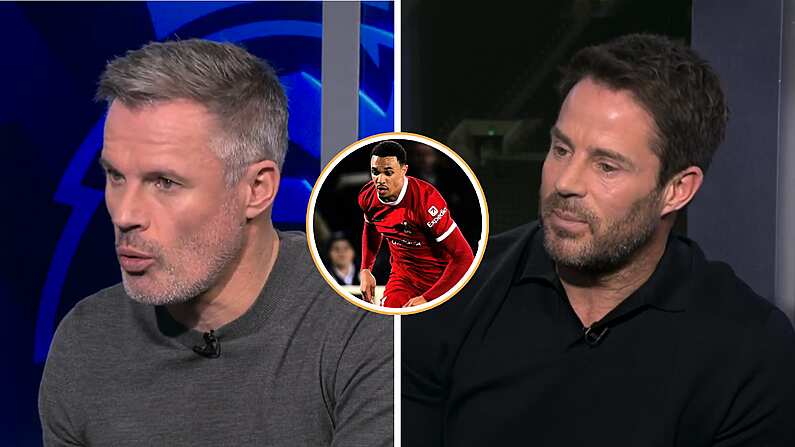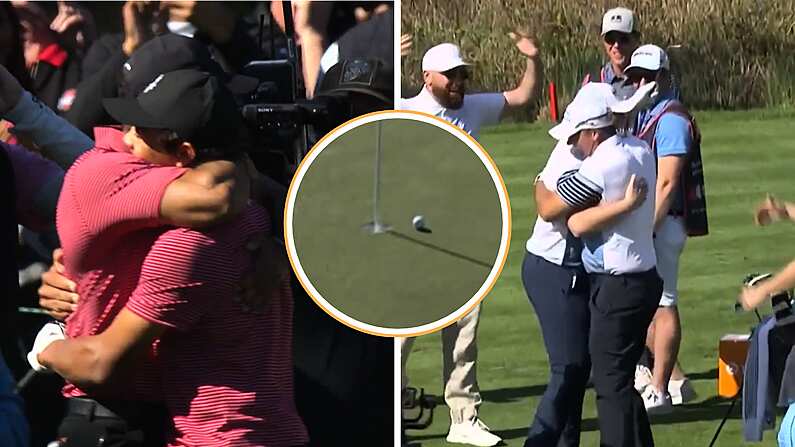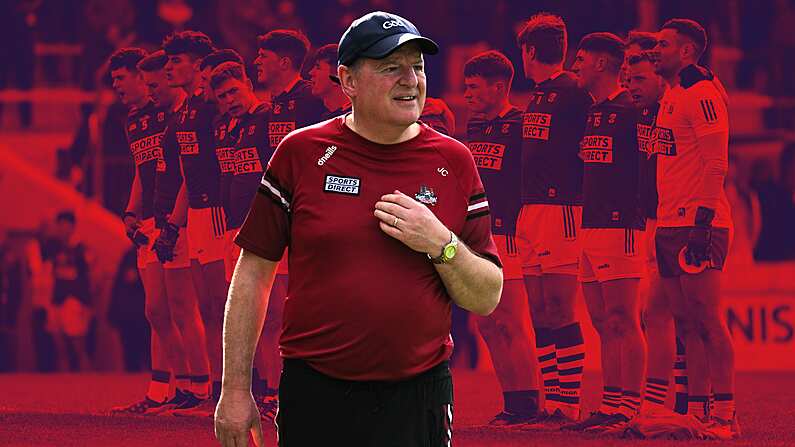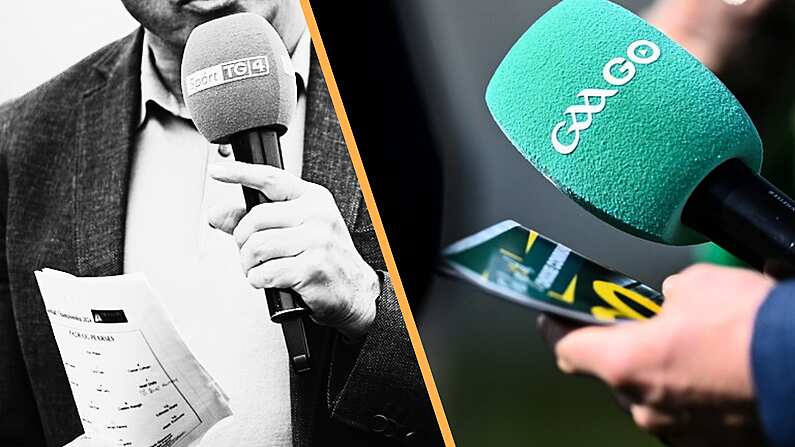Earlier this week, Jim McGuinness displayed a fine grasp of the concept of irony in complaining that Gaelic football has become ugly on the eye as a result of mass defences, the GAA equivalent of Jesus Christ complaining about folk getting too drunk on the wine at a wedding in Cana.
McGuiness used his Irish Times column to complain that too many counties have bastardised the defensive style of play which proved successful for Donegal under McGuiness. McGuinness argued that bodies parked beside one another to facilitate close hand-passing worked for Donegal, who were subject to the wild and capricious winds of the North-West but not, say Galway, a famously calm and tropical part of Ireland.
McGuinness, to his credit, admitted that such a complaint was a bit rich coming from him, and proceeded to offer his own opinion as to what might improve the game's spectacle. The ex-Donegal boss believes that the spectacle would be improved if the rules dictate that at least three players from each team must be in each half of the field at one time.
Joe Brolly was quick to tweet his reaction to McGuinness' column:
No caption needed.. pic.twitter.com/7PbmODK0OQ
— Joe Brolly (@JoeBrolly1993) July 12, 2016
Brevity may be the soul of wit, but Brolly had a column to file for the Sunday Independent after seeing it, so made a rebuttal to McGuinness' opinions the rock upon which his article was built. Brolly argued that there was no scenario in which McGuinness' plan would work, before offering his own:
For the kick-outs, only the four midfielders are permitted to be between the 45. For the kick-outs, there must be six on six inside each 45, just like for the throw in. The kick-out must go beyond the 45 and no other player can break the 45m line until one of the midfielders has touched the ball.
This would abolish short kick-outs, which are a massive part of the problem. It would mean that around 35-50 times per game, the ball would be in possession of a midfielder, with time and space in the central area, who would have a full complement of forwards ahead of him and every option at his disposal.
Crucially, it would make it impossible to set up a blanket defence, since the other outfield players can break the 45 once the ball has been touched by a midfielder between the 45s.
It is an interesting plan, and one which has the added effect of stifling one of the main tactics deployed by Dublin.
[Sunday Independent]

